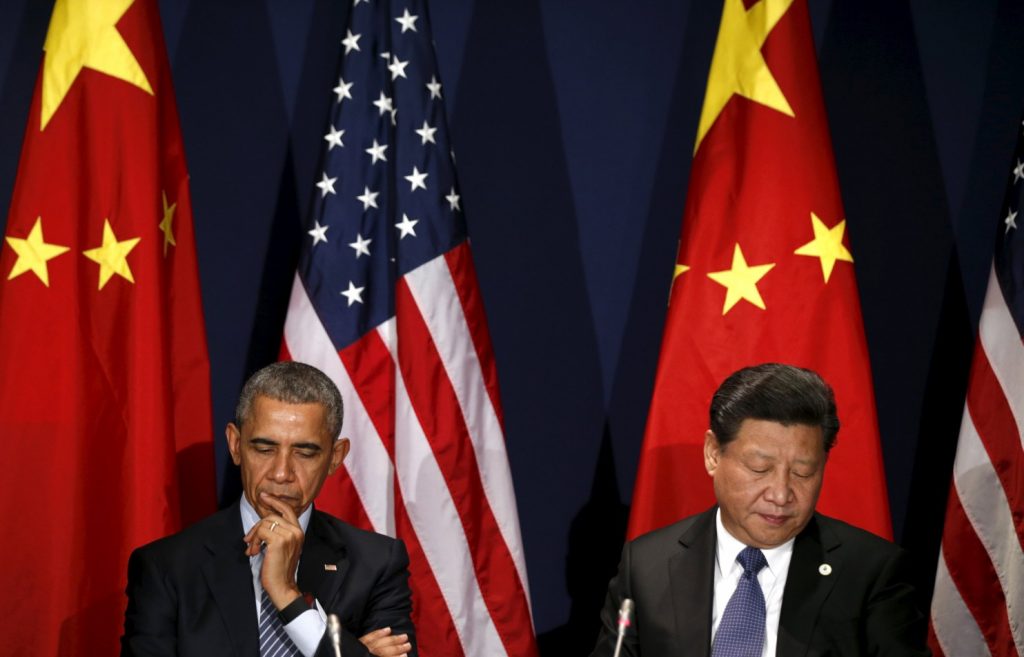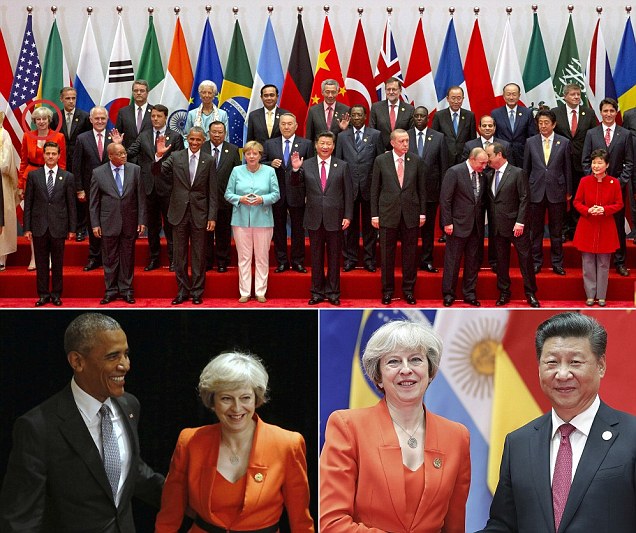Reuters photo
By
Tom Arms
There is a new Cold War. It has nothing to do with the twentieth century philosophical war cries of communism, socialism, capitalism or free enterprise.
The capitalists won—at least for the time being and the foreseeable future.
No, the new battle is between which political system will underpin world capitalism. Will it be the top down authoritarian political structures of China or the bottom up representative democracies of the US, Canada and Europe?
For the winner the prize is political supremacy with all the attendant financial trappings of trade and prosperity.
Because we live in a results-driven world, at the moment it would appear that the exponents of authoritarianism are in the ascendant. Chinese growth has slowed slightly, but it is still nearly four and a half times that of the United States and the EU
Europe and the US by contrast appear incapable of recovering from the self-inflicted banking crisis of 2008-2009, and have sunk into a slough of populist-inspired political pessimism which targets the establishment for every problem from job losses to the latest fight with their partner.
In contrast, a recent survey in China reported that 92 percent of the people were happy; 76% think the economy will improve over the next 12 months; 70% said their personal financial situation will improve and eight out of 10 people believe that their children will have a better standard of living than they do. The survey was not conducted by a Communist party functionary. It was conducted by the American company Pew Research Centre.
The Chinese are quite blunt about the reason for their success. They state with absolute conviction that their underlying political structure—which they call consultative democracy—is superior. And they point to the current US presidential election as absolute proof.
“The race to the bottom will make people rethink the value of democracy,” commented The Chinese People’s Daily.
World leaders at the 2016 G-20 Summit in Hangzhou, China – AP photo
A Chinese student was reported by the BBC as being “unimpressed” by the US elections and American democracy. She was reported as saying: “I think the competition will just intensify the clashes between different social groups. I don’t think this system works.”
Earlier this month the Chinese Communist Party held an international conference on their “consultative democracy” and its benefits for China—and by implication—the rest of the world. Yang Rui, a well known Chinese television news reader, said it was a mistake to use the ballot box “because you have to suppose every voter is rational and reasonable.”
“People seem to forget serious issues. They talk about sex, locker room conversation, men and lousy behaviour. Debates are getting nasty and that undermines the strength of Western democracy.”
Senior party member Fang Xinghai, said the strength of China’s consultative system is the intense deliberation which takes place behind closed doors inside the Party itself.
“This,” he claimed “has allowed China forty years of uninterrupted growth within a stable system. Quiet deliberation is a more effective form of policy than a public shouting match, because policy making is complicated.”
The Chinese leadership do actually consult their people. They do this because 8,000 years of continuous top down civilisation punctuated by periodic violent upheavals has left the elite conscious of the need to deliver the goods or find themselves swinging from a Shanghai lamp post.
And as surely as the sun rises in the East, the time will come when the Chinese economy dips. When that happens the people will have no alternative for regime change other than through violent upheaval.
The West, on the other hand, will still have the ballot box, which is why, as Winston Churchill, said: “Democracy is the worst form of government, except for all the others.’
Tom Arms is a broadcaster and columnist focused on world affairs. His regular wold affairs podcast can be heard at www.lookaheadnews.com. He is also available for lectures and speaking engagements.
LookAhead Radio World Report for week commencing 31 October:




No Comments Yet!
You can be first to comment this post!